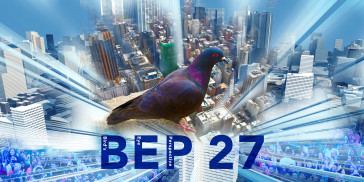MUSE supports the CIVITAS Community to increase its impact on urban mobility policy making and advance it to a higher level of knowledge, exchange, and sustainability.As the current Coordination and Support Action for the CIVITAS Initiative, MUSE primarily engages in support activities to boost the impact of CIVITAS Community activities on sustainable urban mobility policy. Its main objectives are to:- Act as a destination for knowledge developed by the CIVITAS Community over the past twenty years.- Expand and strengthen relationships between cities and stakeholders at all levels.- Support the enrichment of the wider urban mobility community by providing learning opportunities.Through these goals, the CIVITAS Initiative strives to support the mobility and transport goals of the European Commission, and in turn those in the European Green Deal.Breda University of Applied Sciences is the task leader of Task 7.3: Exploitation of the Mobility Educational Network and Task 7.4: Mobility Powered by Youth Facilitation.
The European creative visual industry is undergoing rapid technological development, demanding solid initiatives to maintain a competitive position in the marketplace. AVENUE, a pan-European network of Centres of Vocational Excellence, addresses this need through a collaboration of five independent significant ecosystems, each with a smart specialisation. AVENUE will conduct qualified industry-relevant research to assess, analyse, and conclude on the immediate need for professional training and educational development. The primary objective of AVENUE is to present opportunities for immediate professional and vocational training, while innovating teaching and learning methods in formal education, to empower students and professionals in content creation, entrepreneurship, and innovation, while supporting sustainability and healthy working environments. AVENUE will result in a systematised upgrade of workforce to address the demand for new skills arising from rapid technological development. Additionally, it will transform the formal education within the five participating VETs, making them able to transition from traditional artistic education to delivering skills, mindsets and technological competencies demanded by a commercial market. AVENUE facilitates mobility, networking and introduces a wide range of training formats that enable effective training within and across the five ecosystems. A significant portion of the online training is Open Access, allowing professionals from across Europe to upgrade their skills in various processes and disciplines. The result of AVENUE will be a deep-rooted partnership between five strong ecosystems, collaborating to elevate the European industry. More than 2000 professionals, employees, students, and young talents will benefit from relevant and immediate upgrading of competencies and skills, ensuring that the five European ecosystems remain at the forefront of innovation and competitiveness in the creative visual industry.
Het lopende Bird’s Eye Perspective onderzoek ontwikkelen we door naar een leeromgeving 3.0 waarin wij de mogelijkheden van conversatie analyse en algoritmes toepassen op sociale media berichten. De leeromgeving tracht communicatieprofessionals te trainen in het opmerken van opkomende issues in het online gesprek.
